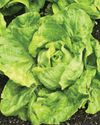
Certain insects are emerging off of their usual schedules, too. The result? Potentially significant disruptions to the life cycles of some of our most industrious pollinators and a decoupling of critical plant-and-pollinator relationships.
“The plants and the insects are responding to different phenological cues,” says Daniel Herms. Formerly a professor and department chair at The Ohio State University Department of Entomology, Herms presently works as vice president of research and development for the Davey Tree Expert Co. He has been monitoring phenological events — natural occurrences synchronized to the weather and the seasons — for nearly 40 years.
“[Plants and insects] respond to temperature differently,” Herms says. “They’re in different niches, and each niche is being affected differently by climate change.”
Generalists vs. Specialists
In part, that degree of impact depends on the relationships insects have with the plants on which they rely. For instance, moths and butterflies tend to be generalists when it comes to their nectar sources. This makes them less susceptible to missed windows of opportunity with specific flowering plants.
“If they’re mismatched with one nectar plant, well, then they just go over to a different nectar plant,” Herms says. (That said, though, they are much more limited in terms of the host plants on which they’ll lay their eggs.)
هذه القصة مأخوذة من طبعة May - June 2023 من Hobby Farms.
ابدأ النسخة التجريبية المجانية من Magzter GOLD لمدة 7 أيام للوصول إلى آلاف القصص المتميزة المنسقة وأكثر من 9,000 مجلة وصحيفة.
بالفعل مشترك ? تسجيل الدخول
هذه القصة مأخوذة من طبعة May - June 2023 من Hobby Farms.
ابدأ النسخة التجريبية المجانية من Magzter GOLD لمدة 7 أيام للوصول إلى آلاف القصص المتميزة المنسقة وأكثر من 9,000 مجلة وصحيفة.
بالفعل مشترك? تسجيل الدخول

The RISE of Opportunist WEEDS
Be prepared to see increasing changes in weeds we fight, such as poison hemlock and poison ivy, and in the crops we grow.

LIVESTOCK Health
Prepare yourself for how to spot symptoms of illness in your farm animals so that you can get them help before it's too late.

CUT FLOWER Farming
If you're considering growing flowers for sale, brush up on these five key things to know before diving in.

WINTER Survival
Keep your land, animals and yourself in good shape this winter with this helpful advice.

COVERAGE CONCERNS
Avoid common insurance mistakes for rural and hobby farm businesses.

FARMER'S GUIDE Berries
Set the stage for tasty strawberries, blueberries and brambles with these soil-boosting garden tips.

Preconditioning CALVES
Follow our step-by-step guide to get more money for your calves.

Soil Conservation
Often, outside of having a specific problem that needs to be addressed, soil conservation isn't something every farmer readily thinks about. Yet conserving the soil should be at or near the top of every farmer owner or manager's list of concerns because absent the prevention of soil erosion, we have the opportunity for another dust bowl.

Year-Round Lettuce & Salad Mixes
It's easy to think of salad greens as just a spring- or fall-garden crop, but it's possible to enjoy freshly harvested lettuces, mustards and more from your own garden year-round.

Barn Improvements
Days are never long enough for a farmer. From dawn to well into the night, tasks arise that often require immediate action. Having to search for tools or equipment is an enormous time waster and incredibly frustrating when you can't find what you need, especially when you know you have it.